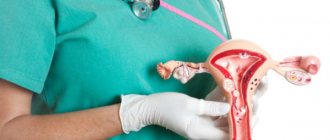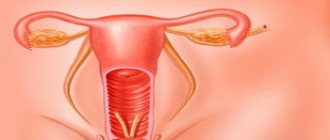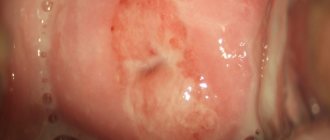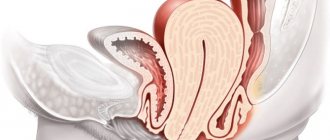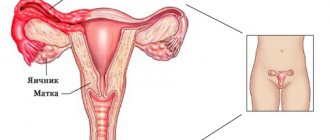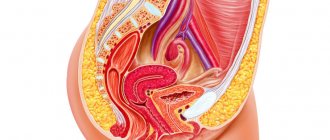Advertisement
I feel sick in the morning - does that mean I'm pregnant? Despite all his naivety, this statement is not without meaning. Morning sickness is a presumptive sign of pregnancy , and if pregnancy is confirmed, nausea, vomiting and excessive drooling are considered part of a condition called "early toxicosis".
According to WHO, almost 90% of pregnant women experience such ailment. Studies have shown that the onset of toxicosis symptoms coincides with the formation of the child’s vital organs. This gave scientists a reason to create many theories explaining the mechanisms of toxicosis. Doctors discuss neuro-reflex, immune or hormonal causes, make new discoveries and create new theories, but we, expectant mothers, would like more practice. And if you are not one of the lucky 10% who do not know toxicosis, our article is for you.
What is pregnancy toxicosis?
Toxicosis of pregnant women is a complication of pregnancy that develops in response to the implantation of a fertilized egg into the wall of the uterus.
This reaction of the mother’s body to a “foreign object”, which is a developing baby, is present, as a rule, until the formation of the placenta, i.e. in the first trimester of pregnancy, sometimes the beginning of the second trimester. The most common manifestations:
- dyspepsia - disruption of the normal functioning of the gastrointestinal tract in the form of nausea and vomiting;
- dehydration (dehydration) - leads to disruption of metabolic processes in all tissues of the mother’s body, which affects her well-being and negatively affects the developing baby.
After the complete formation of the placenta, which plays a unique role as a barrier between mother and fetus, all symptoms of toxicosis disappear.
Toxicosis throughout pregnancy
In the early stages, toxicosis is not something special; almost every second woman encounters this phenomenon. But what if nausea and malaise bother you throughout your pregnancy? In 15-20% of women, symptoms may appear before the third trimester, and in 5% before childbirth. With the end of labor, all unpleasant signs disappear without a trace.
What causes toxicosis during pregnancy?
Despite numerous studies, it is impossible to establish the exact causes leading to the development of toxicosis. However, there are several confirmed hypotheses about the occurrence of such a pregnancy complication.
Hormonal changes in a woman’s body
From the moment of fertilization, serious hormonal changes occur in the female body. Thus, already on days 6-8, the appearance of hCG (human chorionic gonadotropin) is detected - an important indicator of the presence and progression of pregnancy. From the moment hCG production begins, its concentration constantly increases and reaches its maximum value by 11-12 weeks of pregnancy, after which the content of human chorionic gonadotropin in the blood decreases. From this time on, the symptoms of toxicosis also begin to decline.
The influence of the growing fetus, or the immune theory
From the first days of intrauterine life, the baby has its own unique antigenic composition, which differs from the mother’s. Fetal antigens are recognized by the mother's immune system as foreign, and antibodies are produced in response to them. The body recognizes the “stranger” and mechanisms are activated to help get rid of it (as in case of poisoning). Nausea and vomiting in this case act as a natural defense of the mother’s body.
Reflex theory
According to this theory, uterine receptors are irritated by the growing fetus. The signals generated in the endometrium are transmitted to special structures of the brain, where the vomiting center and the center of smell are located. Also in the immediate vicinity there are zones that regulate blood circulation, digestion, and the functioning of the glands. Increased stimulation of these areas of the brain causes symptoms of developmental toxicosis.
Psychogenic theory
From the moment of pregnancy, the so-called center or dominant of pregnancy is formed in the brain. This center is responsible for the behavior of the expectant mother. The level of anxiety increases, emotional instability appears (tearfulness, touchiness, irritability). Together, these factors become triggers for dizziness, nausea, and weakness.
The likelihood of toxicosis and the degree of manifestation of symptoms also depends on a number of factors that affect the general condition of the pregnant woman. These include diseases of the digestive system, liver pathology, astheno-vegetative syndrome.
Why does toxicosis occur?
The exact reason why toxicosis occurs during pregnancy in one case or another is almost impossible to identify, since most often it occurs as a result of a number of reasons. However, one thing is certain - mild and even moderate toxicosis is a natural, although not always normal, reaction of the body to the changes occurring in it. Most often there is no reason to worry or worry. Only severe toxicosis during pregnancy can indicate serious disorders and become a reason for hospital treatment.
Physiological, hormonal and psychological changes occur in the body of every pregnant woman, starting from the first day of conception. Failure to adapt to these changes can cause toxicosis in the following cases:
— Disruptions in the normal functioning of the uterus caused by diseases of the genital organs, abnormal development of the uterus or endocrine pathologies. In this case, the function of the receptor apparatus of this organ is disrupted, which sends incorrect signals to the nervous system, which in turn provokes such a reaction in the body.
— Psychological unpreparedness or rejection of the fact of pregnancy, negative environmental background, stress and other factors affecting the nervous system. In addition, new impulses for the body emanating from the embryo may be incorrectly interpreted by the nervous system (due to disruptions in the central nervous system itself), which, in turn, will influence the body in an attempt to get rid of the irritant.
— Changes in the qualitative and quantitative composition of hormones in a woman’s body always cause a response.
— Toxicosis during multiple pregnancy is often caused by increased levels of human chorionic gonadotropin. Too much of this hormone can lead to hormonal imbalance and toxicosis.
- Hereditary factor. If the patient’s mother and grandmother suffered from toxicosis during pregnancy, then it is highly likely that history will repeat itself in the present.
In addition, diseases of the gastrointestinal tract of a pregnant woman can lead to early toxicosis.
The most probable, but least proven reasons include the assumption that early toxicosis during pregnancy tells a woman that she needs to be more attentive to the products she consumes and her emotions. After all, proper nutrition and a calm lifestyle are the key to a normal pregnancy and the growth of a healthy child.
Timing of toxicosis occurrence
Most often, the first manifestations of toxicosis are felt at 5-6 weeks of pregnancy. The maximum severity of symptoms is observed at 9-10 weeks of gestation. Then all symptoms of toxicosis subside, which coincides with a decrease in hCG levels. In most cases, symptoms go away on their own by 12-13 weeks.
By this time, the structure of the placenta (the baby's place that allows the transport of nutrients from mother to fetus) is almost completely formed, the concentration of human chorionic gonadotropin decreases.
Toxicosis: is there a “norm”?
Many expectant mothers are concerned about the question at what week of pregnancy toxicosis appears and when it should end.
It is believed that during a normal pregnancy, nausea first begins to bother a woman at 4-8 weeks. However, some patients note that toxicosis appeared literally from the first days of the delay or even a little earlier.
Often a woman begins to feel sick immediately after she finds out that she is pregnant.
The discomfort usually stops by 12-16 weeks. By the end of the fourth month, the formation of the placenta is completed: now it is responsible for blood circulation in the mother-fetus system and is a kind of filter.
Therefore, by week 20, the condition of most patients is completely normalized, and the “golden period” of pregnancy begins. But there are exceptions: read about them below.
Thus, the duration and severity of toxicosis largely depends on:
- woman's health before pregnancy;
- lifestyle, nutrition, bad habits of the patient;
- environmental situation in the region of residence;
- heredity.
Classification of toxicosis
If the manifestations of toxicosis disappear by week 20, then this condition is designated as early toxicosis of pregnancy. If the above symptoms appeared after the 20th week (in the second half of pregnancy), then in this case we are talking about late toxicosis. If a pregnant woman’s body cannot cope with the load and the functioning of organs and systems is disrupted, a serious, life-threatening condition for the woman and the fetus occurs - gestosis.
Preeclampsia can be suspected if one or more of the following symptoms are detected: swelling (the limbs and face may swell; swelling does not go away after sleep); increased blood pressure (pressure can increase significantly, responds poorly to antihypertensive drugs, the condition of the pregnant woman is disturbed - dizziness, headache, etc. may appear); proteinuria (detection of protein in the urine - a condition that indicates that the kidneys are not coping with their work and their function is impaired).
Based on the severity of symptoms, test results, complaints of the pregnant woman and her general condition, early toxicosis is divided into three degrees of severity: mild, moderate, severe. Further treatment tactics will depend on the severity of the course.
How to treat
You can alleviate the condition of early toxicosis of mild and moderate forms at home. Doctors advise adjusting your daily routine and diet. Eating small portions at a comfortable temperature will help reduce pressure on the stomach.
In the morning, when you feel particularly nauseous, instead of rushing to get out of bed, you need to give yourself the opportunity to go through a difficult period of adaptation to the new day by snacking on sour dried fruits, crackers, dry cereals and other foods that reduce nausea.
Walking and physical exercise are great for pregnant women, including yoga and water aerobics.
Main manifestations of toxicosis
General symptoms
These include the following symptoms:
- nausea. The earliest and most common symptom. Nausea begins in the morning (on an empty stomach), can occur independently after waking up, or can be triggered by odors or food intake;
- vomiting (from 1-2 times a day, to indomitable). The danger of vomiting lies in the significant loss of fluid in the body. With dehydration (dehydration) of the body, the blood becomes more viscous, the load on the cardiovascular system increases, and the risk of blood clots increases. At the same time, with indomitable vomiting, water and food are not absorbed, significant changes in the water-electrolyte balance occur, potassium and sodium ions, as well as proteins are lost, which generally has a negative effect on the body;
- changes in taste and smell. Habitual odors can have an inadequate effect on the vomiting center, the pregnant woman constantly feels nausea, and attacks of vomiting occur;
- increased salivation (ptialism). It can be a separate independent manifestation of toxicosis, or combined with other symptoms. With excessive salivation, up to 1 liter of fluid is lost, and with it, as with vomiting, proteins and electrolytes;
- weight loss due to fluid loss, loss of appetite. Changes in body weight can be used to judge the severity of the condition and the effectiveness of the treatment;
- due to insufficient amount of fluid in the body, the skin becomes dry, flabby, and elasticity decreases;
- a decrease in blood pressure is also a consequence of dehydration (dehydration) and in turn leads to drowsiness, lethargy, apathy, decreased attention and concentration.
Rare forms of toxicosis include: skin lesions (dermatoses that occur during pregnancy); changes in liver function, manifested by hepatosis; osteomalacia (impaired mineralization of bone tissue, leading to bone deformation and spontaneous fractures). Pathological processes can also affect the respiratory system (bronchial asthma in pregnant women develops). Fortunately, such manifestations of toxicosis are quite rare.
For mild toxicosis
A mild degree of toxicosis is characterized by a slight change in laboratory parameters and the general condition of the pregnant woman. Vomiting occurs with a frequency of no more than five times a day; the pregnant woman can take food and drink that are adequately digested. There may be moderate weight loss. Performance suffers slightly, sleep is not disturbed.
With moderate toxicosis
Moderate toxicosis is characterized by:
- nausea is constantly present, even after attacks of vomiting, which occur up to 10 times a day, nausea quickly returns;
- the general condition of the pregnant woman significantly worsens, sleep and appetite are disturbed;
- appetite is reduced, food and drink taken are not fully absorbed, which leads to significant loss of body weight (up to 5 kilograms per week);
- changes in general clinical tests are noted. The blood tends to thicken (increased red blood cells, hematocrit), and the level of acetone found in the urine has a clear tendency to increase as dehydration progresses.
In case of severe toxicosis
Fortunately, cases of severe toxicosis are rare. It is a threatening condition for both the mother’s body and the unborn baby. In this form, nausea becomes constant, uncontrollable vomiting exhausts the pregnant woman (its frequency reaches 20 or even more times a day). There is a significant loss of body weight - up to 8-10 kg. It becomes impossible to retain even a small amount of water or food in the stomach.
Objectively, one can observe a clinical picture of severe dehydration: dry skin (the skin becomes gray, sometimes acquires an icteric color); changes in the cardiovascular system (heart rate increases, blood pressure sharply decreases). Using laboratory diagnostics, signs of a pronounced disruption of the functioning of organs and systems are detected - blood pH, water-electrolyte balance, and blood clotting processes are disturbed. A urine sample for acetone is strongly positive.
Why do pregnant women feel sick?
The beginning of pregnancy is not only an exciting moment for every family, but also a time of great changes in a woman’s body.
Today, doctors identify the following causes of toxicosis:
- Serious hormonal changes.
- Active work of the maternal immune system.
- Psychological problems: fear and increased anxiety of the expectant mother.
There are several points in the pathogenesis of the disease:
- Firstly , a woman’s nervous system does not have time to rebuild in response to a sharp increase in hormone levels. As a result, there is a disruption in the functioning of the subcortical nuclei of the brain, activation of the vomiting centers and, as a result, the painful symptom of nausea.
Localization of the vomiting center in the central nervous system
- Secondly , the embryo developing in the uterus and its metabolic products are often perceived by the maternal immune system as foreign agents. In this case, toxicosis can be considered as a protective reaction of the body.
This is interesting. That is why in medicine, nausea during pregnancy is called toxicosis: from the word “toxin” - a poison of biological origin. Of course, while carrying a baby, a woman’s poisoning (in the literal sense of the word) does not occur. Rather, toxicosis can be called an individual reaction of the nervous and immune systems to a developing pregnancy.
According to medical research, toxicosis most often develops in women:
- over 35 years old;
- suffering from gynecological diseases;
- with chronic extragenital pathology (especially liver, kidneys);
- with endocrine disorders;
- have undergone surgery;
- with a history of abortion;
- alcohol abusers and smokers.
Bad habits are one of the risk factors
Another interesting theory connects the appearance of toxicosis with a woman’s physique. It is believed that thin, tall patients are more likely to complain of nausea during pregnancy.
In what cases is examination required and what tests need to be taken?
When you come to the doctor and tell your complaints, even with mild toxicosis, the doctor at the antenatal clinic will prescribe all the necessary tests for you.
You will need to undergo general clinical tests (blood, urine), which will help determine whether the body is coping with the task assigned to it to carry a pregnancy. A biochemical analysis is also necessary, the indicators of which will help assess the condition of the internal organs, on which the load increases significantly during pregnancy (kidneys, heart, liver). At the appointment, blood pressure is measured. The doctor will also ask about changes in body weight. By how much weight a pregnant woman loses, one can judge the severity of the condition and how effective the chosen treatment was.
Among the instrumental methods of examination, ultrasound examination of the abdominal organs is performed on an outpatient basis.
In case of moderate and severe toxicosis and in case of controversial issues, the obstetrician-gynecologist has the right to refer the pregnant woman for consultation to related specialists. In order to exclude concomitant pathology, the patient can be examined by a therapist, surgeon, gastroenterologist, urologist, endocrinologist, neurologist, etc.
Warning: dangerous symptoms
If the main complication of vomiting in the first trimester is dehydration and metabolic disorders, which are usually easily corrected, then toxicosis, starting from the 18th week, often gives doctors serious concern.
Get medical help right away if you:
- lightheadedness and vomiting do not stop, and their frequency is 5-6 times a day or more;
- protein was detected in a urine test;
- the required weight gain does not occur;
- your health has sharply deteriorated;
- swelling of the lower extremities appeared, spreading from the feet to the lower legs and above;
- Blood pressure levels increased.
A woman should undergo a urine protein test before each visit to the antenatal clinic.
Approaches to the treatment of toxicosis
Tactics for the treatment of a pregnant woman with toxicosis are determined strictly individually after a cumulative assessment of all available data - the results of tests and instrumental research methods, the conclusion of specialists, the condition of the pregnant woman at the time of examination, the condition of the fetus, the presence of concomitant pathology in the woman and the degree of its compensation.
Most often, if the expectant mother feels well and the available data indicate a normal pregnancy, women with mild toxicosis are treated on an outpatient basis. The effectiveness of treatment is assessed by the dynamics of the pregnant woman’s weight and the absence of changes in general clinical tests.
Mode
Expectant mothers are advised to follow a work schedule, get enough rest and allocate at least 8 hours of sleep at night. Heavy physical activity and prolonged overwork should be avoided. If work involves staying in the same position for a long time, it is recommended to take breaks to warm up. Walking in the fresh air is of great importance, as it has a beneficial effect on the well-being and health of the pregnant woman. Don’t forget about your favorite hobbies - they allow you to distract yourself and think less about your painful condition.
Diet
It is recommended to eat food 5-6 times a day in small portions. Conditions when a distinct feeling of hunger occurs should not be allowed. The diet should be selected so that it contains enough fresh vegetables and fruits familiar to a woman (without exotic ones). Eating home-cooked, well-cooked food with a minimum content of spices and fats is encouraged (it is strongly recommended to avoid fast food restaurants during pregnancy).
It is recommended to completely exclude foods that irritate the mucous membrane of the gastrointestinal tract (salted, smoked, hot, spicy, as well as strong tea, coffee, highly carbonated drinks, alcohol, smoking).
The main importance is the drinking regime. You need to drink clean warm water in small sips, up to one and a half to two liters per day. You can drink alkaline mineral water, weak tea with mint, ginger. But you should refuse freshly squeezed juices, because... they also have an aggressive effect on the gastrointestinal mucosa.
Drug treatment
Drug treatment is used only if the non-drug approach is ineffective. Typically, pregnant women with mild toxicosis do not need medication.
Due to impaired absorption of nutrients and fluid through the gastrointestinal tract, moderate and severe toxicosis will require fluid replacement through infusion therapy. Fluid losses are replenished with saline (0.9% sodium chloride solution), Ringer's solution, as well as various solutions containing potassium and sodium ions. Intravenous fluid administration helps detoxify the body. To eliminate nausea and vomiting in pregnant women, the use of the drug Cerucal (Metoclopramide) is permitted. In severe cases, with severe dehydration, symptoms of multiple organ failure are observed. Correction of dysfunction of organs and systems is carried out with the participation of specialized specialists.
In the absence of contraindications, it is advisable to prescribe physiotherapeutic procedures recommended by a physiotherapist. When laboratory parameters return to normal, the pregnant woman’s well-being improves, the expectant mother can be discharged to her usual environment, but remains under outpatient supervision.
Hospitalization
Expectant mothers whose condition does not suffer from mild manifestations of toxicosis are treated on an outpatient basis. It is mandatory for them to strictly follow all the recommendations of the attending doctor, maintain a balance between work and rest, nutritious meals, walks in the fresh air and timely monitoring of their condition during their appearance at the residential complex.
Treatment of moderate and severe toxicosis should be carried out in a 24-hour hospital setting in the gynecological department under the supervision of a doctor.
Lifestyle with toxicosis
Don't rush to get up in the morning. Rearrange your daily routine so that you have 20-30 free minutes to lie in bed in the twilight. During this time, eat a cracker or gingerbread cookie. Then have breakfast. It is generally not recommended to mix foods high in protein and carbohydrates, but in this situation, mixing will benefit you. Start your breakfast with a hard-boiled egg and a slice of black bread. If this is not enough for you, continue with breakfast with porridge or vegetables. Meat, smoked meats and spicy dishes are excluded. Drink more - water, tea, juice, milk, herbal infusions, whatever you want - this will help overcome nausea. However, keep in mind that excess fluid can lead to edema, so control the daily volume of fluid consumed. Finish your breakfast with fruit, preferably sour (unsweetened apples, kiwi, lemons).
You should not skip breakfast, as morning vomiting occurs on an empty stomach. If you are concerned about excessive salivation, rinse your mouth with infusions of mint, chamomile, and sage. To prepare it, pour 1 tablespoon of crushed leaves into a glass of hot water, let it brew for 15 minutes in a water bath, then cool and strain.
After breakfast, take your time and get ready for work. Do not wear clothes that compress your stomach and chest. When getting ready, do not bend over, but squat.
Ideally, avoid public transport and crowded places. The abundance of someone else's perfume can make anyone sick, not just a pregnant woman with a heightened sense of smell.
If you feel like an attack of nausea is beginning, breathe through your mouth. Pinch your nose or breathe into your collar or scarf to block out unpleasant odors. Try peppermint candies or menthol chewing gum, maybe it will help you. The main thing is don't panic. Carry a hygiene bag with you and don’t be shy to use it. In the crowd you will be surrounded by women, 90% of whom, according to WHO statistics, have experienced toxicosis themselves at one time, and therefore you will be guaranteed their sympathy.
During the day, do not go hungry under any circumstances. Your menu should be complete and varied. Indulge your unusual culinary cravings if you feel like it, although stories of pregnant women gnawing plaster off walls or hunting for rotten herring heads tend to be greatly exaggerated. Keep in mind that vomiting is most often caused by very hot or very cold food.
Avoid places with strong unpleasant odors, try to spend more time in the fresh air. Walk for at least one hour a day.
Get plenty of rest. Pregnancy, especially with toxicosis, is not the time for productive feats.
Advertisement
If you start feeling sick in the afternoon, it is most likely due to fatigue and nervous tension. Try drinking a soothing herbal tea.
The length of sleep should be at least 8-10 hours a day. This is the rule for all pregnant women, and in case of early toxicosis, sleep time should be increased even more. Sleep on your right side or on a high pillow.
As a rule, these simple recommendations are enough to get through the difficult stage of pregnancy with relative ease. However, listen carefully to your inner feelings.
Consequences of toxicosis
In addition to the discomfort that a woman experiences and changes in diet and lifestyle, toxicosis has other, more serious consequences. First of all, this is due to dehydration, which is a consequence of vomiting. An imbalance of electrolytes occurs, which, in turn, is fraught with the occurrence of cramps in the limbs. However, it is worth considering the degree of toxicosis, because sometimes a pregnant woman only experiences nausea and increased salivation.
In addition, toxicosis may be accompanied by the risk of osteomalacia, when bone tissue softens in the body due to a lack of calcium and vitamins. Sometimes there is a disturbance in blood flow, when the intensity of blood circulation decreases, worsening the condition and well-being of the pregnant woman, weakness and dizziness appear.
There are also cases where toxicosis during pregnancy leads to miscarriage, and the reason for this is changes in the functioning of the kidneys. Therefore, it is very important to inform the doctor about all changes in order to reduce the risks and dangers for both the expectant mother and the fetus.
What should a pregnant woman do if she has severe nausea?
If a woman has severe toxicosis, constant vomiting and nausea, it is necessary to balance her diet. In severe cases, treatment is carried out in a hospital setting.
Therapy consists of performing the following points:
- Daily examination by a specialist.
- Collection of analyses.
- Intravenous drip with glucose solution.
- Taking medications prescribed by a specialist.
- Dieting.
- Ventilation of the room.
The following groups of drugs are used as medications:
- Antiallergic – Suprastin, Claritin. Helps cope with itching and inflammation.
- Antiemetics – Cerucal, Metoclopramide. Reduce the manifestation of nausea and vomiting.
- Sorbents – Polysorb, Activated carbon. Prescribed in the presence of toxins.
- Vitamin complexes – Alphabet, Complivit. Must be taken if there is insufficient amount of nutrients.
- Hepatoprogectors – Essentiale Forte N. Protect the liver from the effects of negative factors and restore it.
- Painkillers – Analgin, Paracetamol. Relieves pain and inflammation.
- Non-steroidal anti-inflammatory drugs - Nurofen, Ibuprofen. Reduce pain, inflammation, swelling
- Detoxification – Regidron. The product helps replenish the lack of fluid that appears due to frequent vomiting.
At the discretion of the doctor, the list of drugs may be changed. Medicines should only be prescribed by a specialist. The doctor calculates the harmful effects on the fetus from use, the benefits of use, and makes a conclusion about the prescription of medications.
Causes of morning sickness in pregnant women
Toxicosis is a feature of the body that occurs during pregnancy. The condition is characterized by nausea. And in some cases, its manifestation is more serious - vomiting occurs. After fertilization, the body is subject to stress, and a woman’s hormonal levels change. The body is preparing for a double load.
In the first trimester, malaise, drowsiness, and weakness may occur. The manifestation of symptoms varies individually. For example, one woman experiences nausea, while another has increased sensitivity to odors. That is, it is impossible to predict the behavior of a pregnant woman.
Toxicosis appears in the following cases:
- histoincompatibility;
- exposure to metabolic products;
- psychogenic factor;
- nervous disorders;
- failure of adaptation.
Histone incompatibility
The fetus is a body foreign to the body. Therefore, in some cases, a woman’s immune system may perceive the unborn child as an enemy. The body tries to get rid of it in every way.
A woman experiences various symptoms - increased body temperature, drowsiness, fatigue with minimal physical activity. The occurrence of a severe form of toxicosis can be dangerous for the fetus; the help of a doctor is required.
Action of metabolic products
There is an opinion that the metabolic processes occurring in the fetus negatively affect the woman’s condition. Since the placenta is not completely formed in the first trimester, all waste products are in the pregnant woman’s body. Toxins are not eliminated, but accumulate in the kidneys, gastrointestinal tract, and liver.
Due to the effect of substances on the female body, nausea and vomiting occur. Additionally, jaundice or acute fatty hepatosis may occur. This theory has not been confirmed.
Psychogenic factor
Toxicosis may occur due to a psychogenic factor. For example, a woman constantly expects nausea or vomiting to appear. After all, she thinks that pregnancy should always be accompanied by toxicosis. If there are additional concomitant diseases (gastritis, cholecystitis), the condition worsens and the likelihood of symptoms increases.
No toxicosis during early pregnancy is no reason to worry.
When there is constant stress and worry in the life of an expectant mother, the risk of the condition increasing. If a woman did not plan the pregnancy and is upset about its onset, the symptoms worsen. When the expectant mother is supported by her relatives, she often does not notice the unpleasant manifestations of pregnancy or there are no signs at all.
Neuroreflex disorders
Internal organs are connected to the central nervous system (CNS). If interaction is disrupted, the body’s functioning is disrupted, which leads to the appearance of unpleasant symptoms.
When a woman is carrying a child, in the subcortical structures of the brain, excitation processes prevail over inhibition, and various symptoms appear. As a result, the central nervous system cannot control the functioning of internal organs, and toxicosis manifests itself in severe form.
Failure of Adaptation Theory
Under normal conditions, the body is able to cope with the embryo and the changes that appear in the body. But if the adaptive capabilities are not enough, toxicosis appears. The situation may worsen under the influence of stress, overload, and concomitant diseases.
In what cases is it necessary to consult a doctor?
When early toxicosis during pregnancy is manifested not only by digestive disorders or drowsiness, but more severe symptoms occur, you should immediately inform your doctor about this, because some signs indicate the development of a serious pathology or even the threat of miscarriage.
Early toxicosis in pregnant women complicates its course, and when a sharp deterioration in well-being begins, and laboratory tests show a deviation from the norm, then to eliminate such manifestations you will have to undergo hospital treatment. The primary task of doctors is to replenish the electrolyte balance in the body, as well as restore protein and salts.
You should immediately visit a doctor when a pregnant woman:
- severe vomiting, repeated many times during the day;
- the amount of urine excreted is reduced, while its color and smell have changed;
- pain in the abdomen;
- any food eaten comes out with vomiting, and the woman cannot eat for half a day;
- the loss of body weight over 14 days is more than 3 kg.
Relief in a woman’s condition is observed when early toxicosis passes, which usually happens at the end of the first trimester.
Causes
Neither doctors nor scientists can determine why women develop toxicosis. The reasons that provoke a deterioration in the physiological state of a pregnant woman in the early and late stages of pregnancy have not been identified.
But still, gynecologists highlight some factors:
- Changes in hormonal levels. After fertilization, the body begins to “reset”, and the hormonal background changes. Due to a sharp change in the quantitative composition of hormones in the female body, a certain reaction can occur: the woman becomes whiny, irritable, begins to feel sick, and her taste preferences change.
- Development of the placenta. During the period when the placenta is formed (up to 14 weeks), the body “gets used” to its “special” position. During this period, organs begin to work differently, which often causes retention of toxins and harmful substances. The consequence of intoxication of the body is toxicosis. The general condition of the pregnant woman improves after the placenta is fully formed (14 weeks).
- Protective reaction of the body. After a woman realizes that she is pregnant, she tries to change her lifestyle. She refuses certain foods and drinks that could harm the baby's health. A sharp change in the usual lifestyle becomes stressful for the body, which subsequently provokes the appearance of symptoms of toxicosis.
- Chronic and infectious diseases. The immune system is weakened by untreated infections. In women with weakened immune systems, the risk of developing early toxicosis is significantly higher.
- Psychological changes. Nervous tension, excitement, worries, stress - all this provokes the development of toxicosis in late pregnancy.
- Age criteria. Statistics indicate that older expectant mothers suffer more from toxicosis. Pregnancy after 35-40 years is often accompanied by a deterioration in physiological condition, especially if you had many abortions before the current pregnancy.
- Heredity. With a genetic predisposition, the risk of developing toxicosis increases by 70%. The probability is high if a woman’s previous pregnancy was also accompanied by a deterioration in her physiological condition.
- Multiple pregnancy. It has been recorded that in women carrying twins, toxicosis occurs much more often than in women with a singleton pregnancy. But, what is important, if a pregnant woman (with twins or triplets) exhibits early toxicosis, then the risk of developing late toxicosis and the likelihood of premature birth are sharply reduced.
Severity of toxicosis
Toxicosis can be mild, moderate or severe. The first two types can be somewhat alleviated in a fairly safe manner, but still be sure to tell the doctor about the sensations you experience - this is necessary in any case.
Toxicosis of varying severity is characterized by:
- in the first degree of severity, the urge to vomit is infrequent, maximum 5 times a day, weight loss is within normal limits;
— the second degree of toxicosis is manifested by frequent vomiting, weight loss within 5 kg;
- with the third degree of severity, the urge to vomit torments a woman up to 20 times a day, while the woman’s general well-being worsens, the temperature often rises, and the heartbeat quickens. Often a pregnant woman loses 10 kg or more. With such severe toxicosis, mandatory hospitalization is indicated, otherwise a miscarriage may occur.
Signs of toxicosis
From the moment of conception, global changes begin to occur in a woman’s body: all organs “rebuild” their mode of operation, adapting to the rhythm of life of the expectant mother and the development of the fetus. Some women understand that “something has changed” in the body even before they visit a gynecologist and receive the results of diagnostic tests confirming the fact of conception.
Toxicosis manifests itself differently in each woman. Many pregnant women notice that their behavior and character change: irritability, aggressiveness, and tearfulness appear. Other women observe physiological changes - increased drooling, loss or increase of appetite, weakness, apathy.
Common symptoms of early toxicosis:
- behavioral changes (irritability, nervousness, tearfulness);
- loss/increase in appetite;
- change in taste;
- increased drowsiness/insomnia;
- gagging;
- frequent nausea;
- physical weakness;
- weight loss.
With late toxicosis, complications begin to develop in the body. In addition to the listed symptoms, other signs may include:
- dermatosis;
- osteomalacia (softening of bone substance);
- tetany (skeletal muscle spasms).
Signs of toxicosis appear regardless of who is born: a boy or a girl. It is important that unpleasant symptoms and a deterioration in a woman’s general condition can also be observed during a frozen pregnancy. A frozen pregnancy can be recognized only after appropriate research has been carried out (determining movements and heartbeats in the fetus).
Vomiting reflex
The most striking manifestation of the corresponding condition is vomiting (or retching, as well as nausea). An unpleasant condition can accompany a pregnant woman both in late and early stages of pregnancy.
Intense vomiting often continues from 1 to 20 weeks of pregnancy. Gynecologists are confident that the earlier in pregnancy vomiting begins to appear, the worse this symptom is tolerated by the woman’s body.
It is customary to classify the gag reflex into the following types:
- The mild degree is characterized by slight and intermittent nausea. Vomiting is possible, but infrequent (up to 5 times/day). Most often, a woman’s gag reflex occurs after eating or after eating a certain product.
- Moderate degree - the gag reflex “disturbs” the expectant mother up to 10 times a day. Nausea occurs not only after eating, but also when exposed to external factors (reaction to certain odors, etc.). Frequent vomiting becomes a provocateur of other physiological changes: a woman develops nervousness, weakness, apathy, and lethargy. Prolonged vomiting often causes blood pressure disturbances and weight loss.
- The severe degree is characterized by frequent and prolonged vomiting (up to 25 times/day). This condition is very dangerous for the health of the expectant mother and her baby. If appropriate action is not taken, a frequent gag reflex will lead to dehydration and sudden weight loss. The pathological condition is almost always accompanied by other abnormalities: an increase in body temperature, the appearance of an unpleasant odor (rotten egg smell) from the mouth, increased heart rate, and a decrease in blood pressure. A sharp deterioration in general condition leads to the woman becoming lethargic, apathetic, and inhibited. Lack of treatment for severe gag reflex is fraught with the development of pathological complications - changes in the functionality of the kidneys and liver. If the pregnancy is aggravated by pathological complications, the gynecologist may recommend that the woman have an artificial termination of pregnancy.
Dermatitis
With early toxicosis, dermatitis rarely develops; most often, skin rashes begin to appear after the 13th week of pregnancy. Dermatitis is characterized by the appearance of diffuse itching, small rashes, and water pimples on the skin.
The first symptoms of dermatitis are most often localized on the skin of the upper extremities or on the face. If the disease is not treated, the rash will spread throughout the body, as well as to the genitals.
Skin rashes (especially on the face) cause women discomfort. In addition to unpleasant sensations (itching, peeling) and cosmetic defects, dermatitis causes irritability, nervousness, and depression.
Development of osteomalacia and tetany
One of the complications of late toxicosis is the development of osteomalacia. Pathology is a change in bone structure (softening of bone tissue). The cause of osteomalacia is a metabolic disorder (phosphorus and calcium metabolism). Osteomalacia is a dangerous disease for humans; softening of bone tissue increases the risk of bone fractures.
Tetany is another complication. The pathology is characterized by the appearance of muscle cramps. First of all, spasms appear in the muscles of the upper extremities; if there is no therapeutic treatment for the pathology, then convulsive muscle contractions appear in the lower extremities and on the face.
Boy or girls – can gender be determined?
You can often hear that the presence of toxicosis during pregnancy indicates that a woman will have a girl, and its absence means that she will have a boy. If we return to the previous paragraphs, we can recall that toxicosis occurs in 70-85% of pregnant women. According to this logic, only 15-30% of pregnancies end in the birth of boys, and this does not correspond to the real state of affairs. So, by toxicosis during pregnancy it is impossible to determine who will be born - a boy or a girl.
Early and late
The manifestation of symptoms may be affected by the timing of toxicosis.
Early – usually occurs in the 1st trimester of pregnancy.
It is characterized by manifestations:
- nausea and vomiting in the morning;
- stomach upset;
- general weakness;
- intense salivation;
- sudden mood changes;
- feeling tired;
- change in taste preferences;
- decreased blood pressure, even to the point of fainting.
A specialist talks about why toxicosis occurs in early pregnancy and how to deal with it in this video:
Late toxicosis appears with the onset of the 3rd trimester and indicates the presence of serious complications.
Its signs:
- swelling;
- increased blood pressure;
- headache;
- convulsions;
- painful sensations in the abdominal area.
What to do in case of early toxicosis?
When a woman suffers from early toxicosis, how to deal with this disease can only be determined experimentally, because all expectant mothers are saved in various ways. The main manifestations of intoxication usually occur in the morning, when blood sugar is low.
By following certain tips, you can choose your own method of treating early toxicosis:
- before getting out of bed, chew a cracker or any dried fruit, which will help cope with the feeling of nausea and increase the glucose level in the body;
- ask your loved ones to brew mint tea, which will soothe the receptors of the oral cavity and prevent vomiting;
- in the evening, place slices of lemon or orange on the bedside table, because chewing citrus fruits can overcome the developing feeling of nausea;
- Chew mint chewing gum, this will increase the production of saliva and muffle the unpleasant urge to vomit;
- drink only those drinks that you enjoy: herbal infusions, juices, tea or just water;
- eat a spoonful of honey as soon as you feel the first symptoms of toxicosis;
- do not take a horizontal position immediately after eating - give the food time to digest;
- Eat often, but in small quantities, this will prevent stomach distension and eliminate the likelihood of overeating.
